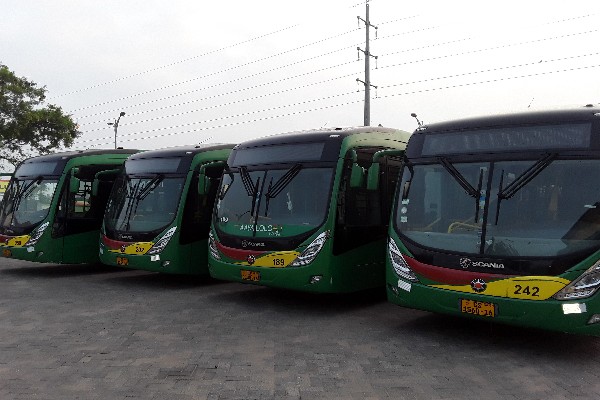
It’s a shame we can’t even manage buses
News is that residents of Adoagyiri, Akwamu, Owuraku and Ntoaso in the Eastern Region are up in arms against a former First Lady, Nana Konadu Agyemang Rawlings, accusing her of unlawfully leasing their lands to an estate agent.
A spokesperson for the former First Lady has corrected the narration. He said the lands were sold not to her but to the 31st December Movement which she founded and was the President of.
I am not going into the merits or demerits of the case; because I am not seized of all the facts, I do not have the competence. Why I am sparing a few inches of space in today’s Daily Graphic to make reference to the matter is the status of the 31st December Movement.
First set of questions: Does the movement still exist? Does it exist in perpetuity? Who are the members? When was the last time a meeting was called? How many members attended? When was the last election to vote in new executives or retain existing ones? Who are the current executives
I refuse to believe matters about either the 31st December Movement or Caridem, the company belonging to the movement, are private matters. It (the movement) was formed by the wife of a sitting President of Ghana. At a point in time, the salaries of its many crèches scattered across the country were paid by the Ghana Education Service (GES) – the state.
Well, more anon.
My beef, this week, is about the industrial action embarked upon by drivers of the Ayalolo intra-city transport service who say they have not been paid for the past five months.
Called for an interview, the Greater Accra Passenger Transport Executive’s (
The last time I checked, this is not the first time the drivers have gone on strike over unpaid wages. In July 2017 when the first strike was declared, it was found that after eight months of operation, the Bus Rapid Transit (BRT) was making losses. Why? The answer was supplied by the Chief Executive Officer of
The evidence is that the problem with the BRT goes beyond low patronage. After the 2017 drivers’ strike, the Ministry of Local Government charged the board to probe the structure and the mode of fuel distribution for the buses.
Meanwhile,
I think it’s a shame, a real “crying shame” - apologies to the former Sports Editor of the Ghanaian Times, Oheneba Charles, - that we have proved incapable of running anything efficiently or profitably.
We cannot even run an intra-city transport system, and yet the BRT has been touted beyond offering a transport solution in a world where this sector accounts for 23 per cent of energy-related global carbon dioxide emissions, second behind electricity and heat generation. Indeed, transport-related emissions are set to rise from 23 per cent to up to 33 per cent by 2050, a threat whose reality has led to the coinage of the word ‘airpocalypse’, a threat which the BRT has been designed to deal with.
I was going to recommend that our BRT managers pay a visit to Lagos, Nigeria to learn some best practices, but I am told that our experts have already been there. In that crowded city, the BRT carries 25 per cent of all trips and has been able to reduce journey time by an average of 25 minutes from one end to another. Wait time has been reduced from 45 to 10 minutes and fares have gone down from 230
Perhaps we may also go to India - for the wrong reasons: The BRT has failed woefully there, so it is good to learn why.
But why go anywhere? As far back as 1992, the intra-city road traffic system in Germany was surviving under a group of brainy experts. One of them was a Ghanaian. I spoke to him in Hamelin.
How often we cite and celebrate the Rwanda success story! One of the consultants cited for the success of that country’s transport sector is a Ghanaian.
Knowing Ghana, I fear that people like these will never be given a chance to place their knowledge
It’s a shame.
